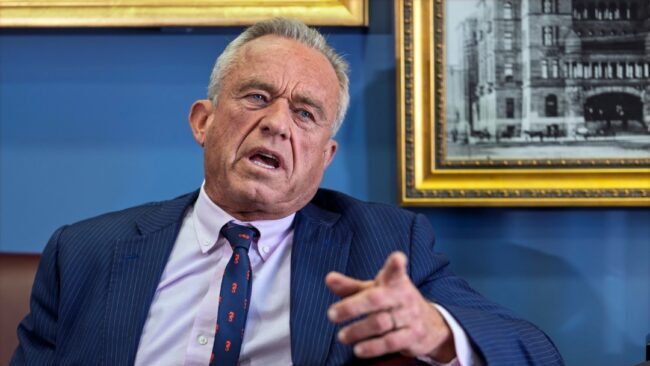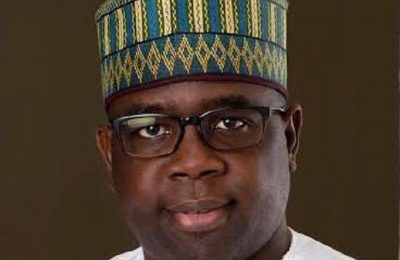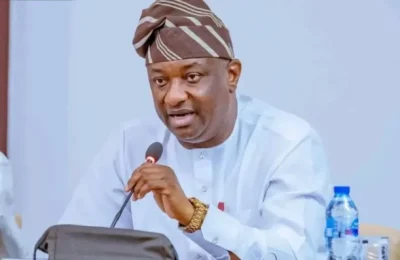
Robert Francis Kennedy Jr., President Donald Trump’s nominee for Secretary of Health and Human Services, is set to encounter rigorous questioning from lawmakers on Wednesday.
His selection has sparked controversy due to his well-documented scepticism about vaccines, a stance that has made him one of the most recognisable critics of immunisation in the United States.

Kennedy, an environmental attorney with no formal background in public health or medicine, has been an outspoken critic of vaccine policies. He has raised doubts about their safety and effectiveness, urged parents to reconsider vaccination schedules, and played a role in legal action against a vaccine manufacturer over alleged deceptive marketing practices.
If confirmed, Kennedy would oversee a vast federal department responsible for healthcare services for approximately 170 million Americans. His role would also involve regulating pharmaceuticals, overseeing vaccine distribution, and monitoring public health crises, including disease outbreaks and foodborne illnesses.
According to two sources familiar with the situation, Vice President JD Vance has been privately reaching out to senators to garner support for Kennedy’s nomination. “Vance is working the phones to make sure Bobby gets over the line,” one insider revealed. Despite multiple inquiries, Vance’s spokesperson has not provided a comment.
During private discussions with senators, Kennedy has maintained that he is not “anti-vaccine” but rather believes in the need for more extensive research. This argument appears to have resonated with some Republican lawmakers. Senator Roger Marshall, R-Kan., commented, “I don’t agree with everything that he says, but we certainly both think that there are opportunities in nutrition and to decrease the toxins that kids are exposed to.”
Kennedy’s confirmation hinges on securing enough Republican votes. He can only afford to lose three GOP senators and still be approved.
Senate Minority Leader Mitch McConnell, a polio survivor, has openly criticised Kennedy’s vaccine views. Additionally, other Republican senators have expressed concerns, particularly regarding Kennedy’s stance on abortion rights.
Democrats have largely opposed Kennedy’s nomination, with no party members publicly endorsing him. Senator Patty Murray, D-Wash., described her meeting with Kennedy as “by far the strangest” interaction she has had with a cabinet nominee.
Expressing strong disapproval, she stated, “I was appalled at his answers and his lack of knowledge and what he was pushing on the American people. We need somebody in charge of this agency that is going to make sure that our kids and grandkids… have the correct health care information, not misinformation.”
To brace for intense scrutiny, Kennedy underwent rigorous mock hearings, often called “murder board sessions,” where advisors posed challenging questions to prepare him for potential confrontations during the official proceedings. Lawyer Ken Nahagian, who has accompanied Kennedy during his Senate meetings, has been leading these preparation sessions, according to two sources.
Adding to the controversy, Kennedy’s cousin, former U.S. ambassador Caroline Kennedy, sent a scathing letter to senators denouncing his nomination. She accused him of exploiting desperate parents and seeking attention and power. “The American healthcare system, for all its flaws, is the envy of the world,” she wrote. “Its doctors and nurses, researchers, scientists, and caregivers are the most dedicated people I know… They deserve better than Bobby Kennedy – and so do the rest of us. I urge the Senate to reject his nomination.”
Public health experts have also raised alarms over Kennedy’s potential appointment. Gregg Gonsalves, a Yale School of Public Health professor, criticized the nomination, stating, “RFK Jr. is so far out of the bounds of any kind of nomination for a post like this in my lifetime that there’s no question you could ask or no answer he could give that would make him qualified for this, or not dangerous in the post.”
Gonsalves has joined a coalition of healthcare professionals, scientists, and community health workers in a letter-writing and phone campaign to inform senators of what they see as the risks associated with Kennedy’s leadership. So far, over 3,500 individual letters have been submitted opposing his confirmation.
Kennedy’s nomination comes at a time when public confidence in government, media, and health organizations is wavering. Trust in institutions such as the Food and Drug Administration has declined significantly since the COVID-19 pandemic, according to a recent KFF poll. However, the same survey found that 80% of Republicans place as much trust in Trump and Kennedy as they do in their own physicians.
As Kennedy prepares to appear before the Senate panel, the battle over his nomination continues to intensify, with both supporters and critics rallying their forces in anticipation of a contentious confirmation process.
ALSO READ FROM NIGERIAN TRIBUNE








